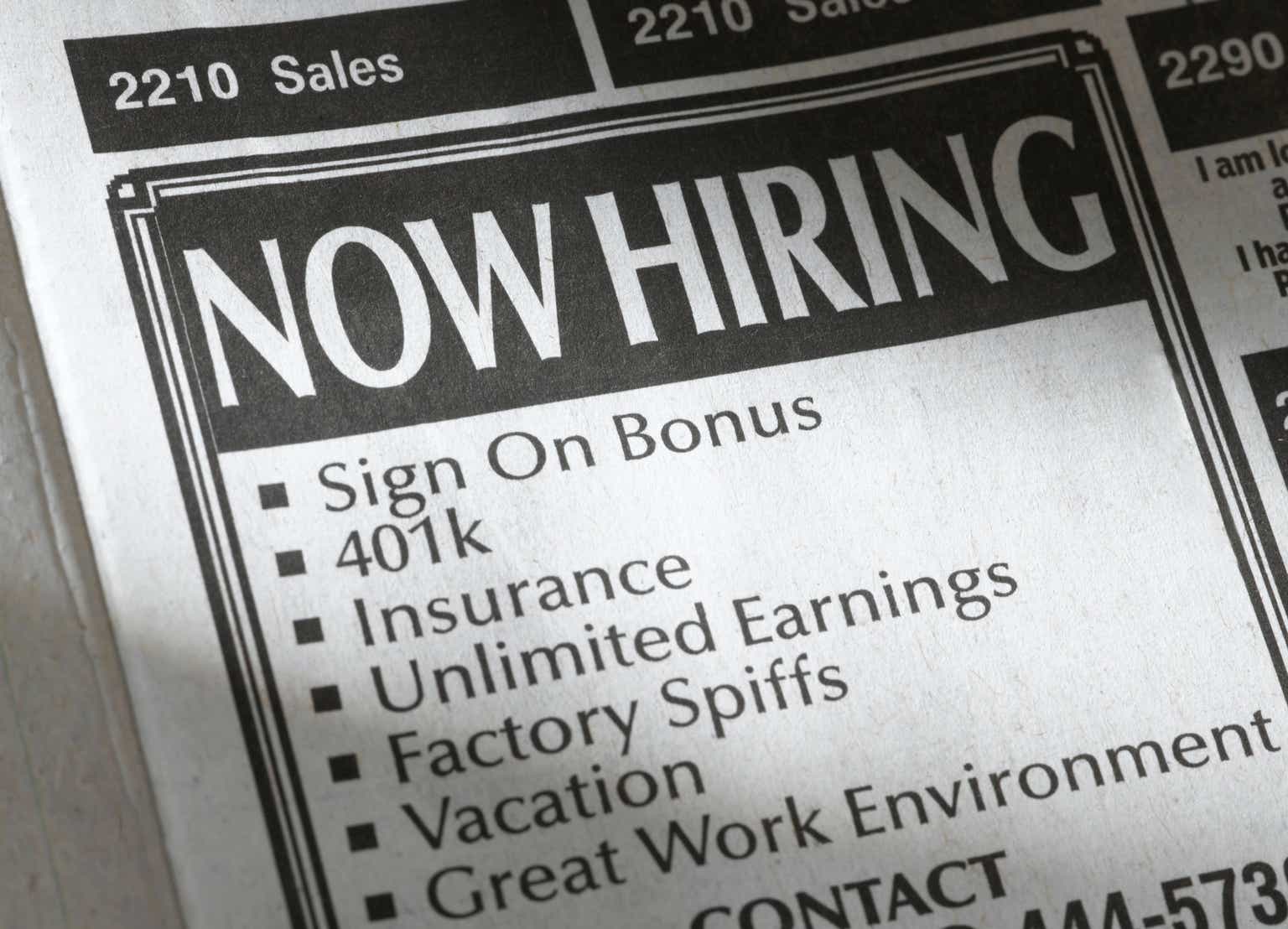Listen below or on the go on Apple Podcasts and Spotify
Nonfarm payrolls are seen up 200K for November. (0:18) Salesforce leads the smaller earnings parade. (1:11) Trump threatens BRICs over greenback. (2:52)
The following is an abridged transcript:
The labor market comes back to the forefront this week with the November jobs report due on Friday.
Last week’s sticky inflation data bolstered the chances of a December Fed rate cut, but a weak payrolls figure could slash those expectations again.
Economists expect that the economy added 200,000 jobs last month, with the unemployment rate ticking up to 4.2% and average hourly earnings up 0.3%.
Wells Fargo economists say: “Through the monthly swings of nonfarm payrolls, we expect the November employment report to reiterate that while the labor market remains solid in an absolute sense, the softening trend in employment conditions has yet to cease.”
The markets are currently pricing in a 66% chance of the Fed cutting by 25 basis points when it meets in a couple of weeks. But those odds could be back on a knife edge with a significant payrolls miss – or one of just 50K if previous months are revised downward.
Leading the earnings parade is Salesforce (NYSE:CRM) on Tuesday. EPS consensus is for $2.45 on revenue of $9.35 billion.
Deutsche Bank says analysts will be looking for updates on how the company’s new Agentforce and Agent Builder offerings are performing. Their analysts expect Salesforce’s total and subscription revenue to come in “modestly” above expectations due to “broadly stable demand environment.”
But they don’t anticipate Salesforce providing an early fiscal 2026 outlook during the call.
“Given the recency of the Agentforce launch, we expect management will want to get a sense of early momentum before guiding, even if contributions are expected to be modest relative to the entire Salesforce revenue base,” they wrote.
Also on the earnings calendar, Zscaler (ZS) and Credo Technology Group (CRDO) report Monday.
Joining Salesforce (CRM) on Tuesday are Marvell Technology (MRVL), Okta (OKTA), Donaldson Companies (DCI) and Core & Main (CNM).
Synopsys (SNPS), Hormel Foods (HRL), Chewy (CHWY), Dollar Tree (DLTR), and Campbell’s (CPB) weigh in on Wednesday.
On Thursday, Kroger (KR), Lululemon (LULU), Cooper Companies (COO), Brown-Forman (BF.A)(BF.B), DocuSign (DOCU) and Dollar General (DG) issue results.
In the news this weekend, Canadian officials alleged the Snowflake (SNOW) hacker, who carried out attacks on the company’s customers, continues to be “a risk of danger to the public.”
Bloomberg cited officials, who said Connor Riley Moucka will face an extradition hearing to the U.S. in the coming weeks. U.S. and Canadian officials allege that Moucka, along with John Erin Binns and others, targeted customers of the cloud-storage company to steal their data before extorting the victims. They received $2.5 million from three unidentified Snowflake customers.
And President-Elect Donald Trump threatened the BRICS member nations with 100% tariffs if they moved to create a new currency to replace the U.S. dollar (DXY) (UUP).
The BRICS alliance — Brazil, Russia, India, China, South Africa, Egypt, Ethiopia, Iran and the UAE — discussed the idea of de-dollarization at a summit in 2023. In an October summit, a symbolic BRICS banknote was unveiled.
Economist Joseph Brusuelas says: “The notion of compelling countries to use the dollar is counterproductive.”
If “President-elect Trump wants to narrow the trade & current account surpluses in those economies in order to rebalance the global economy he will need to accept fiscal consolidation and a weaker dollar.”
For income investors, companies that go ex-dividend this week include Nvidia (NVDA), Qualcomm (QCOM), BlackRock (BLK), McDonald’s (MCD), Lockheed Martin (LMT), Nike (NKE) and Bank of America (BAC).
And in the Wall Street Research Corner, investors looking for a contrarian play in 2025 should go “BIG” — that is: buy bonds, international stocks and gold.
BofA Strategist Michael Hartnett likes: “Long ‘U.S. boom,’ short ‘global bust’ plays in the first quarter on (A) big U.S. dollar and equity overshoot.” But then: “Buy international stocks in the second quarter on Europe/Asia policy panic and aggressive easing of financial conditions overseas.”
Inflation will rise unexpectedly, making gold and commodities a viable source of gains, he added. Along the same lines, BofA recommends going long on crypto.
Investors should buy 10-year U.S. Treasuries (US10Y) when yields hit 5%, “a level that would induce volatility and risk-asset losses, peak ‘inflation boom’ and innovative solutions to reduce (the) U.S. budget deficit.”
Read the full article here



